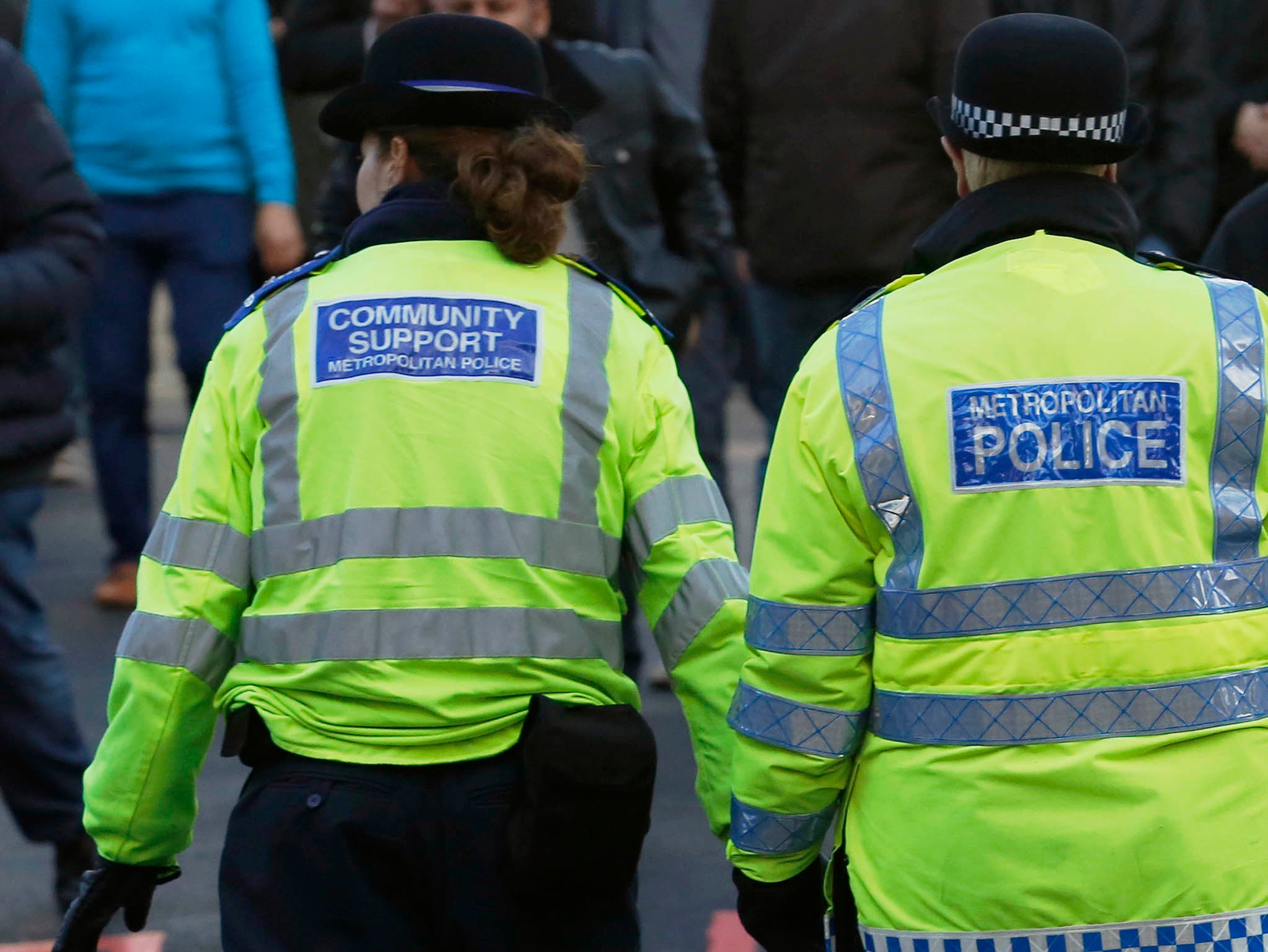Theresa May to give volunteers special powers to help fight crime
'We want to help forces to create a more flexible workforce, bring in new skills and free up officers' time'

Your support helps us to tell the story
From reproductive rights to climate change to Big Tech, The Independent is on the ground when the story is developing. Whether it's investigating the financials of Elon Musk's pro-Trump PAC or producing our latest documentary, 'The A Word', which shines a light on the American women fighting for reproductive rights, we know how important it is to parse out the facts from the messaging.
At such a critical moment in US history, we need reporters on the ground. Your donation allows us to keep sending journalists to speak to both sides of the story.
The Independent is trusted by Americans across the entire political spectrum. And unlike many other quality news outlets, we choose not to lock Americans out of our reporting and analysis with paywalls. We believe quality journalism should be available to everyone, paid for by those who can afford it.
Your support makes all the difference.Civilian volunteers with specialist skills are going to be given “police-style powers” to create a more “flexible workforce”, the government has announced.
The Home Secretary, Theresa May, said forces in England and Wales will be able to expand by recruiting members of the public who have strong accountancy or computer skills to help fight cyber crime.
The changes will allow chief constables the power to hand more responsibility to support staff and volunteers.
Ms May said the Government is "committed to finishing the job of police reform".
She said: "Police officers across the country carry out a wide range of duties, but they cannot do this on their own.
"We want to help forces to create a more flexible workforce, bring in new skills and free up officers' time to focus on the jobs only they can carry out.
"At the same time, we want to encourage those with skills in particular demand, such as those with specialist IT or accountancy skills, to work alongside police officers to investigate cyber or financial crime, and help officers and staff fight crime more widely."
Volunteer police officers, also known as special constables, have been able to exercise police powers since their introduction in 1831, but police support volunteers currently have none of these authorities.
The changes, which will form part of the Policing and Crime Bill, are expected to include allowing volunteers to make arrests, carrying out stop and searches and all powers under the counter-terrorism legislation.
Dave Jones, National Police Chiefs' Council lead for citizens in policing, said: "The new approach to designating police powers will help the police service be more flexible when it comes to attracting and deploying volunteers with valuable skills, especially in situations where the full powers of a constable are not necessary.
"The onus on chief constables is to use the powers wisely, ensure they fit the needs of local policing and provide appropriate training so that they help us keep our communities safe."
Shadow home secretary Andy Burnham said the move sounds like a "back-door means" of filling cuts and "could lead to policing on the cheap".
He added: "The Home Secretary needs to provide assurance that it won't lead to standards being compromised or corners cut.
"The concern is that these volunteers will not be checked or trained in the same way as those who volunteer as Special Constables.
"The police service is an essential public service and cannot be provided on a voluntary basis."
Join our commenting forum
Join thought-provoking conversations, follow other Independent readers and see their replies
Comments